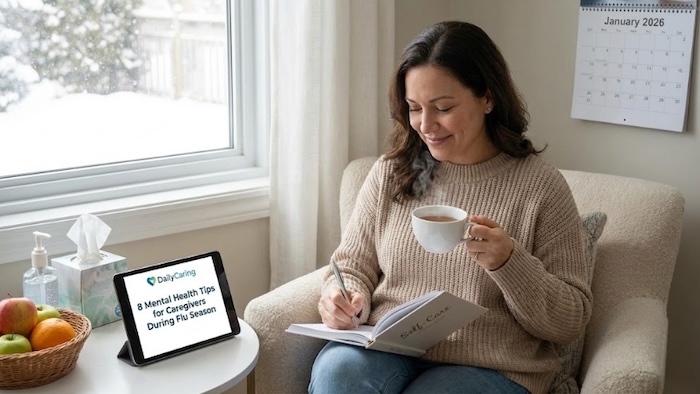When your loved one leaves the doctor's office with a new prescription, it can feel like the hard part is over. But the most critical step for their safety and well-being often happens next: The conversation with the pharmacist.
Between complex instructions and potential side effects, it's easy to feel overwhelmed. Arm yourself with knowledge and become your loved one's best advocate by asking these eight essential questions that go far beyond, “How many pills do I take?

Pharmacists are trusted experts who can explain what medications are for, how to take them, and if there are potential drug interactions or side effects. Talking with them about an older adult’s medication helps keep them healthy and feeling as good as possible. Walgreens shares eight crucial questions to ask the pharmacist when your older adult gets a new prescription.
Have you ever gotten a new prescription for your older adult, only to get home and realize you don’t know how they should take it or what it’s for?
About half of the 3.8 billion prescriptions in the U.S. are taken incorrectly. This includes mistakes around timing, dosage, frequency, and duration.
Avoid misunderstandings about medications by reaching out to a pharmacist. Surveys have found that pharmacists rank among the most trusted healthcare professionals.
Think of the pharmacist as part of your older adult’s care team.
If they see multiple specialists for various conditions, or if the doctor’s office isn’t up to date on all their prescriptions, their physician may not be aware of all the medications they’re taking.
Pharmacists are willing to help you understand why your older adult needs the medication, give details on how to take it correctly, help manage side effects, evaluate cost-effectiveness, and review their complete medication list to find out if there are any dangerous medication interactions.
Before filling the prescription, be sure to talk with your older adult’s doctor to understand its purpose and how it helps their condition.
This is essential to know because some people may decide not to take medication because they don't know what it’s for or why they need it. Get your best health outcomes by understanding and properly taking your new and current medications.
Here are eight questions to ask the pharmacist to ensure that your older adult is taking medications safely and effectively.
8 Essential Questions to Ask the Pharmacist About New Prescriptions
1. Are there any risks? What are the benefits of taking the medication?
Weighing the risks and benefits can ensure that your older adult is getting the best medication for their health conditions.
2. What are the side effects?
Being aware of potential side effects and reporting them to your older adult’s physician early on can help in their treatment.
3. How expensive is this medication and will insurance cover it?
The doctor may not know the cost of a particular medication, and there are many types of insurance coverages.
Most likely, the pharmacist will have information about the cost of a medication.
4. Does the medication come in a generic form and is it effective?
Generic medications are generally cheaper and just as effective.
However, keep in mind that newer medications may not be available in generic form and may be the drug of choice for a particular medical condition.
VIDEO: 8 Questions to Ask a Pharmacist About New Prescriptions
5. Are there any special considerations when taking the medication? How should it be taken?
Check whether the medication should be taken with food, on an empty stomach, or at a specific time of day. Also, some medicines are more tolerable when taken at different times.
6. When will the medication take effect?
Some medications take effect quickly — within minutes or hours — while others may take 4 to 6 weeks to reach complete therapeutic levels.
Knowing this information will help set expectations so you don’t mistakenly think the medication isn’t working and have your older adult stop taking it too soon.
7. How long will they need to take the medication?
Medication for an easily treatable condition may work in as little as one dose, but a medication for chronic conditions may need to be taken for years.
Ask the pharmacist which category this medication falls under.
8. Why is this new drug better than what they were previously taking?
A new drug may be more effective for managing a condition or may have fewer side effects.
Final Thoughts
Walking into the pharmacy with these questions in hand transforms you from a passive recipient into an active, informed partner in your loved one's health. Remember, no question is too small when it comes to medication safety.
Your pharmacist is an invaluable—and often underutilized—resource. By having this conversation, you're not just filling a prescription; you're building a safety net that ensures clarity, prevents errors, and provides the peace of mind that you are doing everything you can to keep your loved one safe and healthy.
Recommended for you:
- 8 Tips to Avoid Harmful Drug Reactions and Overmedication in Seniors
- 14 Questions to Ask Doctors When Starting New Medications for Seniors
- 6 Common Medication Problems in Seniors and 6 Ways to Solve Them
Guest contributor: Jean Cherry, RN, MBA, writes on behalf of Walgreens, offering helpful tips to seniors and their caregivers. Be sure also to let your pharmacist know about any vitamins or supplements you’re taking. You can find an assortment of vitamins to complement a healthy diet at Walgreens.com.
Although it is intended to be accurate, neither Walgreen Co., its subsidiaries or affiliates, nor any other party assumes for loss or damage due to reliance on this material. Walgreens does not recommend or endorse any specific tests, physicians, products, procedures, opinions, or other information that may be mentioned in the article. Reliance on any information provided by this article is solely at your own risk.














I would also add to check the prescription. I once got a prescription for someone with my same last name, but a different first name, and it was a different medication. I was able to pick up this mistake right there at the pharmacy.
Excellent suggestion, thank you for sharing! The pharmacy can make mistakes so it’s a good idea to double check right there at the counter.